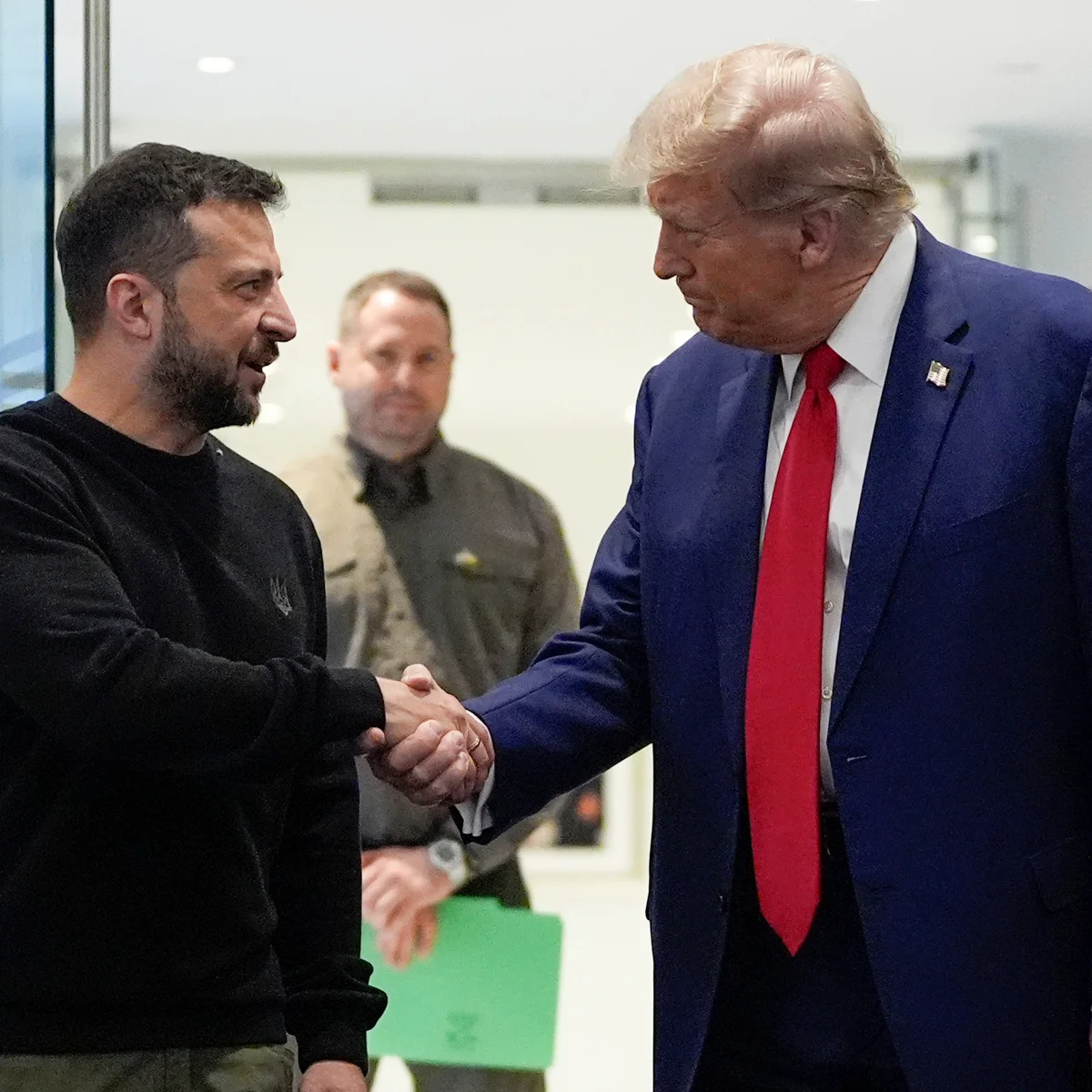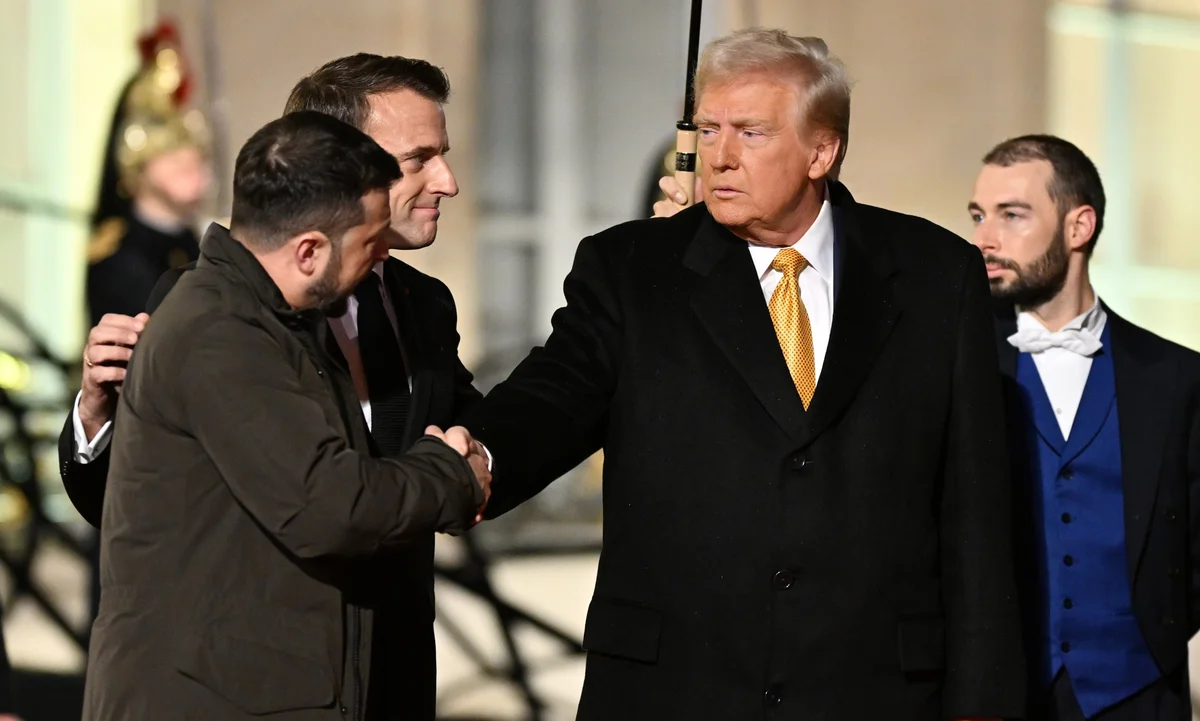Since Donald Trump’s reelection as US president, world leaders have been eager to align with him, with Ukraine seemingly making the most significant efforts to court his favor.
In his annual New Year’s address, Ukrainian President Volodymyr Zelensky expressed confidence that the new American president was both willing and capable of achieving peace and ending Russia’s aggression. These comments exemplify his strategy of trying to win Trump over.
Shortly after, Zelensky appeared on an American podcast, where he stated that Trump’s victory was due to him being a “much stronger” candidate than Vice President Kamala Harris. He also praised Trump for showing that he could succeed both intellectually and physically.
Zelensky is not alone among prominent Ukrainians in seeking Trump’s approval. In November, a Ukrainian member of parliament from Zelensky’s party even nominated Trump for a Nobel Peace Prize, as revealed in a letter.
This kind of approach—where foreign leaders attempt to flatter or appeal to powerful figures—is not new. China, for example, took Trump to the Forbidden City, while the UK government involved the royal family during his first term in office.
Ukraine’s approach is not entirely fresh either. In 2019, Zelensky called Trump a “great teacher” during a phone call that later became infamous when Trump urged Ukraine to investigate Joe Biden and his son Hunter, a call that was described as a “textbook suck-up” in a opinion article.
Now, as the stakes for Ukraine have reached new heights, Zelensky’s tactics have become even more crucial. Heading into 2025, Ukraine is on the defensive in its ongoing war against Russia, with Ukrainian forces struggling to hold their ground in the east, where they face overwhelming Russian numbers. The prospect of reclaiming Russian-occupied territory seems increasingly unlikely in the near future.
Under President Biden, the US became Ukraine’s largest military supporter, and Zelensky is keenly aware that maintaining good relations with Trump is essential for securing continued support.
“Unfortunately, Zelensky does not have the luxury to be hostile towards Trump,” said Joanna Hosa, a policy fellow at the European Council on Foreign Relations, in an interview.
“He must at least try to get him on Ukraine’s side in order to secure the best possible outcome for Ukraine, which depends enormously on American support.”
Trump has often emphasized the need to end Russia’s war in Ukraine, suggesting that negotiations could lead to peace. His envoy’s peace plan includes provisions that could be favorable to Russia.
Zelensky has expressed a desire to “work directly” with the new president, and it appears that he may be more willing, or perhaps forced, to make battlefield concessions.
“Of course, Ukraine would want to recapture all land it lost. However, after three years of this exhausting war, recapturing all land is nowhere in sight. With a heavy heart, Ukrainians are slowly coming to accept this,” Hosa said.
Zelensky has consistently described Trump as a strong leader, a tactic intended to appeal to a president-elect who has made “peace through strength” a central tenet of his rhetoric.
Zelensky recently told United News, Ukraine’s wartime TV network, that Trump could be crucial in ending the war, calling him decisive and capable of halting Putin’s advances.

Orysia Lutsevych, deputy director of the Russia and Eurasia Programme at Chatham House, believes Zelensky’s praise is genuine. She told: “I think he genuinely believes that Trump can make bold moves, and this is where this hope comes from, and not only in Zelensky’s mind but in Ukraine more broadly.”
Another factor in Ukraine’s approach is that Trump differs from previous US presidents in that he believes in cultivating a good relationship with Russian President Vladimir Putin.
Trump has consistently praised Putin, while many world leaders have distanced themselves from him. Trump has also stated that he would seek to meet Putin “very quickly” after taking office.
Putin, for his part, has shown openness to building ties with Trump. After Trump’s election victory, Putin congratulated him, calling him a “courageous man.” In his year-end news conference in December, Putin indicated he would be willing to meet with Trump.
Even if Russia is brought to the negotiating table, there are doubts about the reliability of any agreements. As Nick Paton Walsh points out, Russia’s past promises of peace in Ukraine have been marked by deception, suggesting any ceasefire might be little more than a temporary measure.
Lutsevych believes that Ukraine is framing its potential defeat in the war as a way to enhance America’s “power projection” on the world stage. “This is the game; whether Trump will believe this is a viable strategy is another question,” she said.
Zelensky has also offered additional incentives. In October 2024, he proposed replacing some US forces stationed in Europe with Ukrainian troops once the war is over.
He argued that Ukraine’s wartime experience could help strengthen NATO and contribute to European security—an appeal likely to resonate with Trump, who has repeatedly urged Europe to do more for its own defense.
Zelensky has also sought to appeal to Trump’s business-oriented mindset. His so-called “Victory Plan,” announced in October 2024, includes a significant deal on minerals, a valuable resource for which Ukraine has rich deposits.
The signing of this minerals deal was delayed twice, possibly to allow Trump to take credit for it once he takes office.
Lutsevych suggests that Ukraine is positioning itself as a profitable partner for the US, stating that the “Victory Plan” includes critical minerals and investments. “Ukraine is basically trying to say that it can be profitable for America.”
While flattering Trump is a common diplomatic tactic, his unpredictability means there are no guarantees that it will succeed.
Trump’s visit to the UK in 2019, where he was greeted by Queen Elizabeth II, didn’t prevent him from publicly attacking British leaders on Twitter, including labeling Mayor Sadiq Khan a “stone cold loser” and criticizing Prime Minister Theresa May as “foolish.”
Hosa believes that Zelensky’s efforts are showing signs of success. In July 2024, Trump acknowledged that ending the conflict would take more than 24 hours, a shift in his rhetoric that suggests a more nuanced approach to the war.
“Zelensky faced a choice: flatter Trump or be forced to capitulate to Putin,” Hosa said. “Flattery is a small price to pay for a better outcome than that.”


